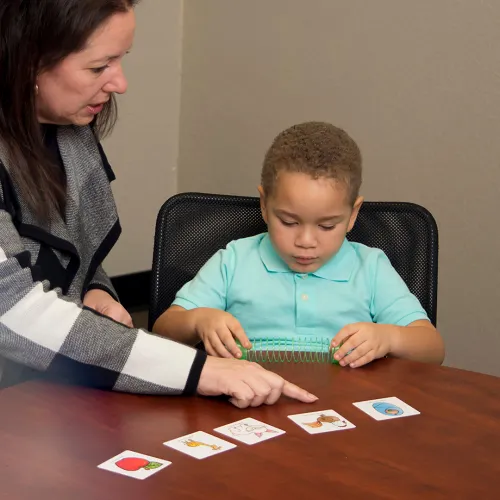If you’re a parent watching your child struggle to read, you’re not alone—and there’s no shame in seeking help. Many students face reading challenges at some point in their academic journey, and one of the most effective ways to overcome these hurdles is through one-on-one tutoring, especially with the guidance of a certified reading specialist.
At PDX Reading Specialist, we understand how deeply reading struggles can impact a child’s confidence, classroom engagement, and overall academic performance. We also know how powerful personalized support can be in turning things around. In this post, we’ll explore how individualized instruction boosts reading proficiency and why it’s one of the most important investments you can make in your child’s education.
What Does It Mean to Be “Reading Proficient”?
Reading proficiency is more than just decoding letters and words. A proficient reader is someone who can:
- Recognize and manipulate sounds (phonemic awareness)
- Understand letter-sound relationships (phonics)
- Read fluently with appropriate speed and expression
- Grasp the meaning of words and sentences (vocabulary)
- Comprehend and analyze texts (comprehension)
These components work together to allow a student to not only read but to learn from reading—and that’s a critical difference. A child who lacks proficiency in even one of these areas may find themselves stuck, frustrated, and falling behind in every subject that requires reading (which is, essentially, all of them).
Why Some Students Struggle with Reading
There are several reasons a student may find reading difficult. These include:
- Developmental Delays: Some children take longer to develop early literacy skills, and that’s okay—but they may need targeted support to catch up.
- Learning Differences: Dyslexia, ADHD, or language processing disorders can interfere with reading development.
- Lack of Foundational Instruction: If early phonics or phonemic awareness weren’t taught well, students can miss key building blocks.
- Environmental Factors: Limited access to books, high screen time, or disruptions at home can all play a role in early literacy delays.
Regardless of the cause, the key is identifying the issue early and applying the right kind of intervention.

The Unique Power of One-on-One Tutoring
In a traditional classroom, teachers are responsible for meeting the needs of 20–30 students with diverse learning styles and skill levels. Even the best teachers may not be able to provide the individualized attention your child needs. That’s where one-on-one tutoring shines.
Here’s what makes this approach so effective:
1. Tailored Instruction That Targets Specific Needs
Every student has a unique reading profile. With one-on-one tutoring, instruction is built around your child’s strengths and weaknesses. A reading specialist can zero in on specific skill gaps—whether it’s decoding, fluency, or comprehension—and customize lessons to address those areas in a logical, structured way.
For example, a student who reads fluently but struggles with comprehension will receive very different support than one who needs help decoding multisyllabic words. This kind of precision targeting simply isn’t possible in group settings.
2. Pacing That Matches the Student’s Learning Speed
In a classroom, the curriculum moves on whether a student has mastered the content or not. But in a one-on-one setting, we can slow down, speed up, or review based entirely on what’s best for your child. This flexibility ensures true understanding and builds long-term literacy rather than short-term memorization.
3. Immediate Feedback and Correction
Real-time correction is essential in literacy development. Whether a child is mispronouncing a word, skipping over punctuation, or misunderstanding the context, immediate, gentle correction helps build habits that lead to fluent, confident reading.
4. Confidence Boosting Through Encouragement and Success
One of the most overlooked aspects of reading development is the emotional toll that struggles can take. Kids who feel “behind” may act out, withdraw, or even develop anxiety around school. A skilled reading tutor provides a safe, supportive space where success is possible—and celebrated.
Over time, this builds not only skill but also self-esteem. And as confidence grows, so does a child’s willingness to read, participate, and try new things in school.
Why Choose a Certified Reading Specialist?
While general academic tutors can be helpful, certified reading specialists bring a much deeper understanding of literacy science. At PDX Reading Specialist, our team members are trained in evidence-based methods like Orton-Gillingham, Wilson Reading System, and Structured Literacy—approaches proven to help students with dyslexia and other reading difficulties.
Our specialists have:
- Deep knowledge of reading development and intervention
- Training in multisensory instruction
- Experience working with diverse learners
- Patience, empathy, and a passion for helping kids succeed
With this foundation, we don’t just help kids “get by.” We help them thrive.
The Role of Reading Assessments
Before any tutoring begins at PDX Reading Specialist, we start with a comprehensive reading assessment. Think of this as a blueprint. It helps us answer important questions like:
- What is your child’s current reading level?
- Are there specific gaps in phonics, fluency, or comprehension?
- How does your child approach reading tasks cognitively?
- What strengths can we leverage in instruction?
Using this data, we create a personalized plan of action. And as your child progresses, we reassess to fine-tune the approach. It’s a dynamic process that prioritizes measurable growth.

Common Signs Your Child May Need Help
You might wonder: “Is this normal, or should I be concerned?” While every child develops at their own pace, here are some red flags to watch for:
- Avoids reading or says they “hate” it
- Struggles to sound out simple words
- Reads slowly or without expression
- Has trouble understanding what they’ve read
- Gets easily frustrated during reading homework
- Is performing below grade level in ELA
- Has been diagnosed with dyslexia or another learning difference
If any of these sound familiar, early intervention is key. The earlier we can address challenges, the easier it is to close the gap.
How Parents Can Support the Process
Parents play a critical role in reading success. Here’s how you can help:
- Create a reading-friendly home: Provide books, limit screen time, and make reading part of your routine.
- Talk to your child’s teacher: Open communication can help identify challenges early.
- Celebrate effort, not just outcomes: Every step forward deserves recognition.
- Work with a professional: A reading specialist can be your ally in helping your child succeed.
At PDX Reading Specialist, we keep families in the loop with regular updates, strategies for reading at home, and support for navigating school services.
How One-on-One Tutoring Translates to Classroom Success
When a child becomes a stronger reader, the benefits spill over into every academic area:
- Better performance across subjects
- Increased participation and willingness to ask questions
- Improved writing skills
- More engagement with homework and assignments
- Higher confidence during tests and presentations
We’ve seen students go from reading below grade level to outperforming expectations in just one school year—with consistent, targeted support.
Let’s Rewrite Your Child’s Reading Story
Reading struggles don’t define your child. With the right help, those struggles can become stepping stones to strength. Our mission at PDX Reading Specialist is to provide the expert, compassionate support your child needs to become a confident, capable reader—and to enjoy learning again.
Take the First Step Today
Don’t wait for reading challenges to “work themselves out.” The sooner we intervene, the greater the impact.
👉 Contact PDX Reading Specialist today to schedule a comprehensive reading assessment.
Together, we’ll build a plan to help your child thrive—one word, one page, one story at a time.


